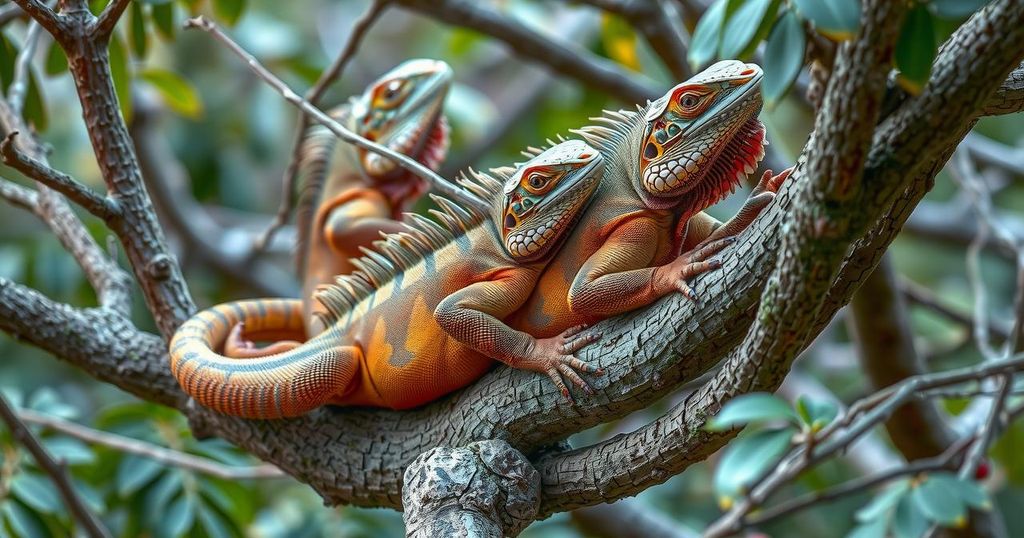South Florida Prepares for Cold Snap and Falling Iguanas as Temperatures Drop
South Florida is experiencing a cold snap as temperatures are expected to drop below 50 degrees, causing iguanas to become dormant and potentially fall from trees. Recent lows include 55 degrees in Miami and 51 degrees in Kendall and Pompano Beach. A substantial cold front will hit, leading to lows of 49 degrees overnight. Meanwhile, severe weather impacts parts of the central and southern U.S.
As winter draws near, South Florida is preparing for a cold snap resulting in exceptionally low temperatures that could lead to the bizarre occurrence of “falling iguanas.” Specifically, temperatures are projected to dip below 50 degrees Fahrenheit this week, with Miami experiencing a low of 55 degrees recently. Local meteorologist Brandon Orr anticipates that from Wednesday onward, temperatures may plummet further, causing these green iguanas, which thrive in the region’s usually warm climate, to become dormant and fall from the trees.
Notable cooler areas include Kendall and Pompano Beach, which recorded lows of 51 degrees. Conversely, Miami’s temperatures have climbed into the high 50s and low 60s by midday. The weekend forecast predicts an afternoon high of 72 degrees for Miami, with potential peaks of 75 degrees on Sunday before a robust cold front arrives Monday night, dropping temperatures to the upper 60s during the day and bringing dangerously low overnight lows as low as 49 degrees.
While South Florida braces for its own winter weather, a significant storm system wreaks havoc across the Midwest and Central United States, resulting in heavy snowfall, sleet, and ice, thus creating hazardous conditions. The deep south is also under threat of severe weather, including possible tornadoes. Yet, for South Florida residents, afternoons are expected to offer brief moments of sunshine, with cold conditions persisting through the week ahead.
The phenomenon of “falling iguanas” occurs when temperatures in South Florida drop significantly, causing these reptiles, which have adapted to a tropical climate, to become incapacitated and fall from trees. The area typically experiences warm weather year-round; however, sudden cold snaps induced by frontal weather patterns can disrupt their usual activity. This situation not only affects local wildlife but also shows the regional impacts of extreme weather patterns influenced by broader climatic shifts.
In summary, South Florida is poised to experience unseasonably cold weather that could significantly impact the local iguana population. Residents are encouraged to prepare for the impending cold snap, which is forecasted to deliver lows of 49 degrees Fahrenheit, marking some of the lowest temperatures in nearly two years. Furthermore, while South Florida may witness some sunshine amidst the cold, the region’s experience remains notable as it continues to adapt to changing weather conditions.
Original Source: www.local10.com




Post Comment